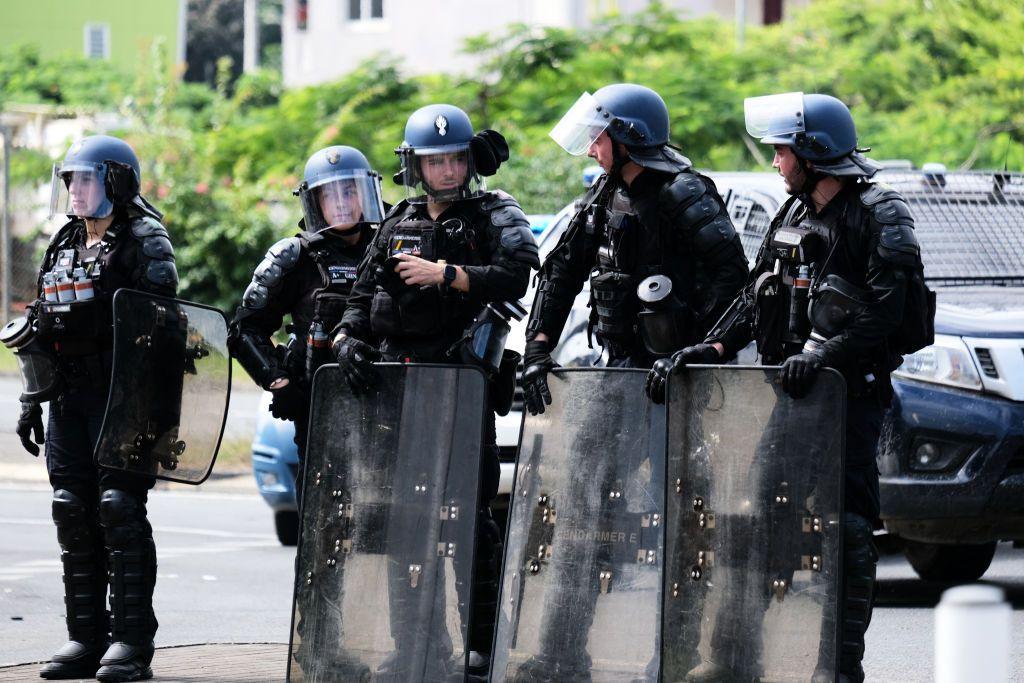More French police arrive in New Caledonia amid riots

- Published
Hundreds of French police reinforcements have arrived in New Caledonia amid rioting that has left five people dead in the Pacific Ocean territory.
French High Commissioner Louis Le Franc said officers had been deployed to "regain control of all the areas that we have lost".
The unrest erupted this week after lawmakers in Paris voted to change electoral rolls to allow more French residents to vote. Indigenous leaders say the move will dilute the political influence of the native people.
Hundreds of people have been injured and about 200 people have been arrested so far.
French Prime Minister Gabriel Attal said 1,000 extra police were joining the 1,700 personnel already there. He said authorities would push for "the harshest penalties for rioters and looters".
Dozens of people queue outside a supermarket in Noumea
Under the state of emergency, authorities have imposed a night-time curfew and banned public gatherings, carrying weapons and the sale of alcohol.
Schools remain shut and Noumea's airport is closed to commercial aircraft.
Photos from the territory in recent days show flames and smoke billowing from a shopping centre, burnt-out cars and long queues of people outside shops.
Many supermarkets are closed and those that remain open are experiencing shortages because of roadblocks, eyewitnesses say.
Ten independence activists accused of organising violence have been placed under house arrest.
The five killed during the protests include two gendarmes, as well as three Indigenous Kanak residents aged 17 to 36, officials say. Dozens of police officers have been wounded.
The five New Caledonian parties - including pro-independence groups - had issued a statement "solemnly" urging "the population to calm and reason".
New Caledonia's neighbouring island states are watching the situation closely.
The Melanesian Spearhead Group (MSP), a regional group, said on Wednesday: "These events could have been avoided if the French government had listened and not proceeded to press forward with the Constitutional Bill aimed at... changing the distribution of seats in Congress."
The group's members include Papua New Guinea, Vanuatu, Fiji, the Solomon Islands and New Caledonia's Kanak and Socialist National Liberation Front.
- Published15 May
- Published14 May
New Caledonia has a population of about 300,000 people, of whom the indigenous Kanak people make up about 40%, or 112,000 people.
The group of islands, located between Australia and Fiji, has been a French territory since the 19th Century. This is the worst unrest it has seen since the 1980s.
Under the 1998 Noumûˋa Accord, France agreed to give the territory more political autonomy and to limit voting in provincial and assembly elections to those who were residents then.
More than 40,000 French nationals have moved to New Caledonia since.
This week, the National Assembly in Paris proposed granting voting rights to French residents who have lived in the territory for 10 years.
Because this requires a change to the constitution, the measure faces further hurdles.
The Noumûˋa agreement allowed for three referendums on the country's future. Independence was rejected in all instances.
The first two showed slim majorities for remaining part of France. The third, in December 2021, was boycotted by pro-independence parties because it was held during the Covid pandemic.